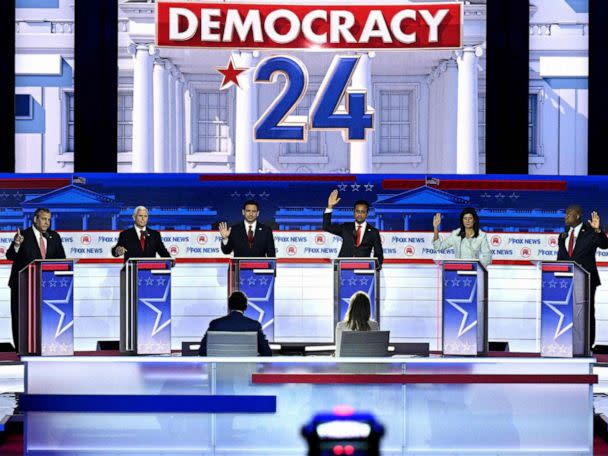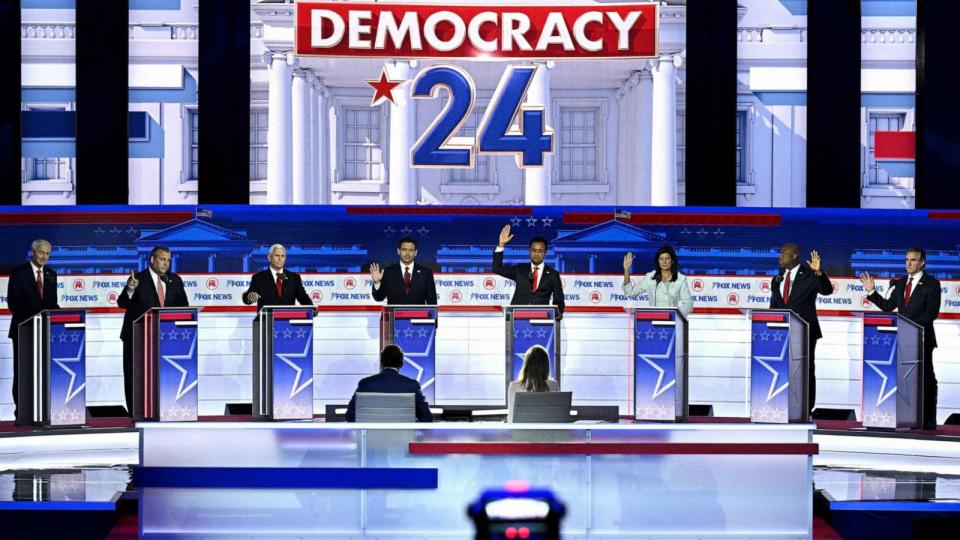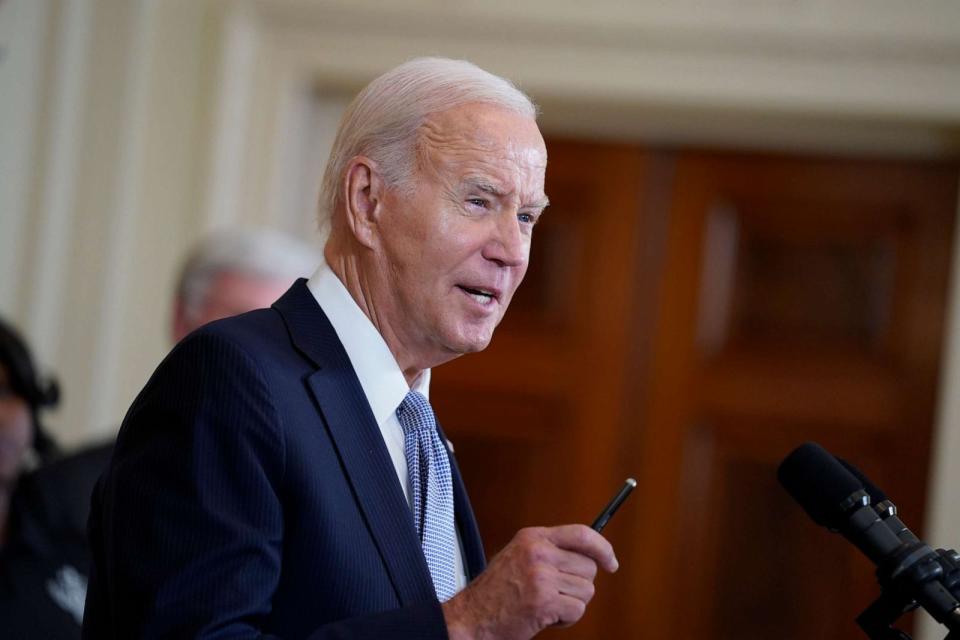A word missing from the Republican presidential debate: 'Recession'

The Republican presidential candidates at a debate on Wednesday bemoaned a series of economic problems: elevated inflation, the sluggish housing market and the growing national debt.
During a roughly 20-minute discussion of the economy that offered each of the eight candidates on stage a chance to speak, however, none of them uttered the word "recession."
The absence of the R-word, which has loomed over the economy for more than a year, comes at a moment of cautious but growing optimism among economists about the nation's prospects of avoiding a recession altogether, analysts told ABC News.
The candidates opted instead to focus on pocketbook issues that may resonate more deeply with voters, some analysts noted.
"'Recession' is fading from the political lexicon, as recession risks fade," Mark Zandi, chief economist at Moody's Analytics, told ABC News. "So many have been wrongly calling for a recession for so long, it is no longer resonating with voters."
MORE: Republican debate highlights and analysis: Fiery faceoff on Trump, Ukraine and more
"Of course, recession risks are still uncomfortably high, and if anything else goes wrong, a downturn could occur, but these risks feel increasingly less risky," he added.

Inflation has fallen significantly from a peak last summer but remains more than a percentage point higher than the Federal Reserve target of 2%. Hiring has slowed in recent months, meanwhile, but the unemployment rate continues to hover near a 50-year low.
In summing up the U.S. economic outlook, Florida Gov. Ron DeSantis warned of "decline"; while former Vice President Mike Pence vowed to put the country "back on the path to growth and prosperity."
Former New Jersey Gov. Chris Christie cautioned that government spending is "robbing our country"; and former U.S. Ambassador to the United Nations Nikki Haley said the U.S. "needs an accountant in the White House."
"We've seen inflation explode," added Sen. Tim Scott, R-SC. "We can stop that by turning the spigot off in Washington."
Vivek Ramaswamy, an entrepreneur, assured that the issue of the economy "isn't complicated." He promised to accelerate energy production, stabilize U.S. currency and reform the Federal Reserve.
However, the candidates largely avoided a specific assessment of the nation's economic health, Callie Cox, an investment analyst at financial services company eToro, told ABC News.
"We've come a long way this year," Cox said. "Economic optimism is definitely picking up again."
Nearly three-quarters of forecasters surveyed by the National Association for Business Economics said that the probability of the U.S. entering a recession in the next 12 months is 50% or less, the organization announced last month.
Echoing that burst of optimism, the median of economists surveyed by Bloomberg last month put the odds of a recession within the next 12 months at 58%, down from 70% in December.
Federal Reserve staff no longer forecasts a recession for the U.S., and there is a chance inflation could return to target without high job losses, Fed Chair Jerome Powell said at a press conference in Washington D.C. last month.
"Folks are more than willing to not worry as much about a 'possible' recession," Stephan Weiler, a professor of economics at Colorado State University and a former research officer at the Fed, told ABC News.

In recent months, President Joe Biden has leaned into the political branding "Bidenomics" as his 2024 reelection campaign kicks off.
"Bidenomics is working," the White House said in June. "While our work isn't finished, Bidenomics is already delivering for the American people.
Biden does not appear to be receiving credit for the relatively improved economic outlook. A poll in May from ABC News and the Washington Post found Americans 54-36% said former President Donald Trump did a better job handling the economy when he was in office than Biden has done so far.
MORE: 7 takeaways from the 1st GOP primary debate
While inflation has fallen, it remains elevated for many goods, including products regularly encountered by consumers, said Mark Hamrick, Washington bureau chief at personal finance company Bankrate. Republican presidential candidates may have chosen to focus on issues that directly affect a household's bottom line, he added.
"Most Americans are more attuned to their own personal finances and the higher costs of certain, or many things, than they are about the technical definition of a recession," Hamrick said.
On Wednesday, near the end of the discussion about the economy, North Dakota Governor Doug Burgum said, "I do want to say, on this, we're missing something."
The candidates had overlooked the nexus between economic policy and national security, Burgum said. "We can't just talk about the Biden economy," he added.
ABC News' Zunaira Zaki, Ivan Pereira and Allie Hutzler contributed reporting.
A word missing from the Republican presidential debate: 'Recession' originally appeared on abcnews.go.com

 Yahoo Finance
Yahoo Finance 